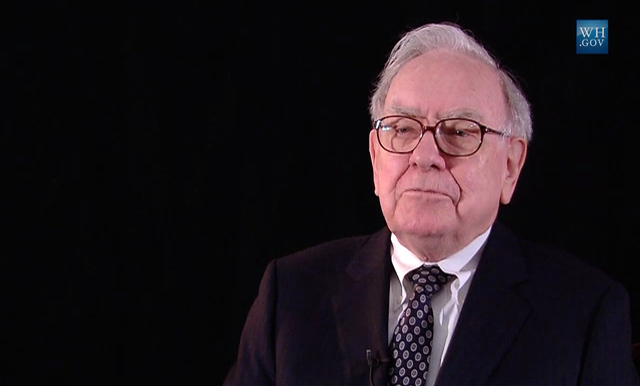Talking to “Globes” deputy editor Dror Marmor at the opening of the Israel Real Estate Conference yesterday evening, Governor of the Bank of Israel Amir Yaron stressed the Bank of Israel’s caution on interest rates. Yaron also commented on the decline in real estate sales in the light of macro-economic conditions.
When will the high interest rates in Israel start to fall?
Yaron: “It has to be understood that inflation is still above the target range at the moment, and is running at 3.3%, and besides that some elements of it are sticky. The outstanding item is rents, where inflation has been at around 4% for a long time. Everyone understands how important the interest rate is for financing real estate projects, or for the economy in general, but it must be remembered that price stability is an essential condition for a properly run economy and a growing economy.”
Yaron pointed out that inflation first and foremost hurts the economically weaker sections of the population, and so it’s important not to allow it to rear its head. “The price of a mistake and the price of correcting it will be much more painful,” he said.
Nevertheless, we are seeing the supply of homes at a peak, and contractors’ sales are stagnating, and according to your own forecast for August inflation will fall below the 3% level. Does that not allow you to cut some slack?
“At the moment, inflation is above target. And apart from the sticky elements, following Operation Rising Lion, in which homes were hit, there will probably be even more pressure on rents, which will affect inflation, and we are liable to see more and more pressure.” Yaron stressed that the Bank of Israel was doing everything it could to prevent inflation from strengthening, adding that “it’s exactly like antibiotics, which you have to take until the end even if you start to feel a little better.”
Yaron also commented on the uncertainty that still exists in the Israeli economy, driven by two forces. “On the one hand we are seeing improvement in many market parameters, reflecting an improvement in Israel’s geopolitical position, but what really affects inflation in general is appreciation of the currency. The other side of the coin is that that same improvement in the geopolitical situation that the markets reflect is liable to bring with it renewed demand pressures.” In Yaron’s view, this is a good situation for the economy, but he said that as far as inflation was concerned these were two opposing forces. “At the moment, we don’t know which of these forces will be dominant in the short term.”
RELATED ARTICLES
On the appreciation of the shekel, Yaron explained that when demand is high, it’s not certain that we won’t see transmission from strengthening of currency, “and therefore we need to follow that cautious, data-dependent policy.”
On future interest rate cuts, Yaron said, “The forecast of the Research Department is for three interest rate cuts within a year, but that relates only to a scenario in which we really see inflation coming within the target range.”
You mentioned demand pressures, and we are two years into very high interest rates, and yet demand in the housing market is still relatively high. To what extent does that surprise you? And did you restrict the financing offers a little too late?
“First of all, the economy has demonstrated very high resilience and strength, certainly given what has happened here since October 7. You have to remember that a tectonic event happened here, and in the last quarter of the year was still an annual 3.5%, which is around the potential of the Israeli economy. At present, we still have a gap of 4% from where we should have been were it not for this whole terrible event, but we are seeing a renewed rise in credit card purchases as well.”
On real estate, Yaron said, “We have a high birth rate, and very high demand for housing, which is an outstanding feature of Israel. What happened here on October 7 was that at first there was a halt in demand, and the contractors’ special offers played a very important bridging role.”
Yaron explained, however, that at a certain stage “the special offers became tooo widespread and so the Bank of Israel decided to intervene wearing its consumer protection hat.”
But we’re still seeing street signs advertising finance offers with zero interest rates and payment only after five years.
“We constantly monitor the market, but the big distinction I make is between real estate offers that still give the customer some kind of protection in that he completes a questionnaire about his financial circumstances, and knows where he will be in the process in three or four years’ time, versus a situation in which you put down 10% from your own money and get no help from a mortgage consultant, or a bank, or any other adviser, and you don’t know where you will be in another three or four years and whether you will be able to meet your commitment.
“The Bank of Israel understands that there will be further developments, and we continue to monitor and ensure that this will not be something that will cause problems for the consumer, or problems for the economy in general.”
On the large supply of homes, Yaron said, “It needs to be understood that of a stock of 80,000 homes, only about 20,000 are homes ready for occupation. Much of the supply of homes is only on paper.”
You know that half of the children born in Israel today are born into the haredi and Arab families, and we have a problem with the rate of people joining the workforce in these sections of the population, particularly haredi men and Arab women. You warn about this year after year, but not much has changed, certainly not at the rate you expected.
“First of all, you’re right, bringing Arab women and haredi men into the workforce is something I have been talking about since I took up the post. When you look at general measures of productivity, of education, we have a very big problem.
“As far as the haredi population is concerned, you have to understand that in, say, 2050-2060, they will be twenty something percent of the total population, while Arab society’s proportion of the population will remain at its current percentage. That will of course weigh heavily on the economy. We won’t be able to grow in the way we would like.
“We’d like them to join the workforce, and earn well, and in order to do that they must have the core curriculum. We know that that is the key to later success, certainly in a changing world with AI in which you need very good general skills with which you can develop.”
Full disclosure: The conference was held in cooperation with Bank Leumi and sponsored by Mivne Group, Shikun and Binui, Solel Boneh and the Fischer law firm. (FBC)
Published by Globes, Israel business news – en.globes.co.il – on July 22, 2025.
© Copyright of Globes Publisher Itonut (1983) Ltd., 2025.








